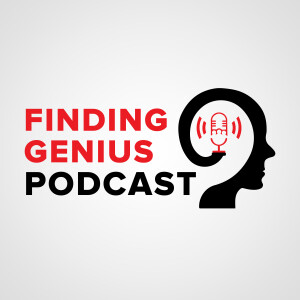
A Cancer Cell's Advantage: Evolutionary Forces and Cancer Therapy
 2021-04-19
2021-04-19
"A tumor grows out of what's, at default, a state of cooperation," says researcher Carlo Maley. His research interest centers on the intersection of cancer and evolution and ways to use that understanding to treat cancer.
He shares fascinating studies and theories with listeners, exploring
- How growing a tumor in vitro into a spheroid allows researchers to study it as an organism,
- How cancer cells transitioning from epithelial to mesenchymal tissue enables mobility,
- What the "Big Bang" hypothesis means in cancer research, and
- Why understanding the low cancer rate in whales might help our own treatment.
Carlo Maley is an associate professor with the Biodesign Institute in the School of Life Sciences at Arizona State University and is the director of the Arizona Cancer and Evolution Center.
He specializes in cancer, evolution, and computational biology. He explains that cancer and evolution intersect on two different levels. First, within our bodies, cells are evolving and competing, mutating and surviving or failing. These processes can lead to the beginnings of cancer. Second, when doctors treat cancer with methods like chemotherapy, selective pressures again determine evolutionary forces, leading to resistance.
Professor Maley explores both of these levels in imaginative detail, explaining for example how bone marrow cancer growth and lung cancer may have different pressures and mechanism to progress through natural selection and competition. It's this competition of cells that creates phenomena such as removing a tumor leading to increased metastases. He explains that, in "many of these mutations. . . that affect the biology of a cell, actually, are going to be advantageous for the cell, but ultimately bad for the body." Yet, cancer cells are able to coopt cellular machinery that leads to cooperation. He touches on numerous puzzles, including the role of bacteria and microbiomes in some cancers, and shares some exciting research into adaptive therapies.
Listen in for an enlightening and hopeful view into cutting-edge cancer research.
Episode also available on Apple Podcasts: apple.co/30PvU9C
More Episodes
Create your
podcast in
minutes
- Full-featured podcast site
- Unlimited storage and bandwidth
- Comprehensive podcast stats
- Distribute to Apple Podcasts, Spotify, and more
- Make money with your podcast
It is Free
- Privacy Policy
- Cookie Policy
- Terms of Use
- Consent Preferences
- Copyright © 2015-2024 Podbean.com






